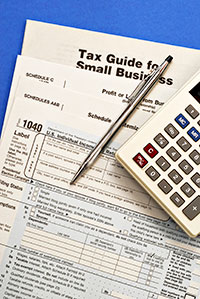Social Security Benefits and Your Taxes
Social Security Benefits and Your Taxes
Some people must pay taxes on their Social Security benefits. If you receive Social Security, you should receive a Form SSA-1099, Social Security Benefit Statement, by early February. The form shows the amount of benefits you received in the prior tax year.
Here are some tips and guidelines from the IRS to help you determine if any portion of your benefits are taxable:
1. The amount of your income and your filing status affect whether you must pay taxes on your Social Security.
2. If Social Security was your only income during the tax year, your benefits are probably not taxable. You also may not need to file a federal income tax return.
3. If you received income from other sources, then you may have to pay taxes on your benefits. Other sources include, but are not limited to, such things as:
compensation from employment (you receive a W-2),
Self-Employment Income,
Interest,
Dividends,
Retirement Plan Distributions (IRS's, 401k's, Keogh Plans, etc.),
Capital Gains income from sales of capital investments
Net Income from rental property
Income allocations from S Corporations, LLCs, or Partnerships in which you have an ownership interest
4. You can follow these two quick steps to see if your benefits are taxable:
• Add one-half of the Social Security benefits you received to all your other income, including tax-exempt interest. Tax-exempt interest includes interest from state and municipal bonds.
• Next, compare this total to the ‘base amount’ for your filing status. If the total is more than your base amount, then some of your benefits may be taxable. The base amount has remained the same from year to year for a number of years, but should be double-checked each year, just in case.
The three 2012 base amounts are:
$25,000 for single, head of household, qualifying widow or widower with a dependent child or married individuals filing separately who did not live with their spouse at any time during the year;
$32,000 for married couples filing jointly; and
$0 for married persons filing separately who lived together at any time during the year.
For more information on the taxability of Social Security benefits, see IRS Publication 915, Social Security and Equivalent Railroad Retirement Benefits. You can get a copy of this booklet on www.IRS.gov or by calling 800-TAX-FORM (800-829-3676).


